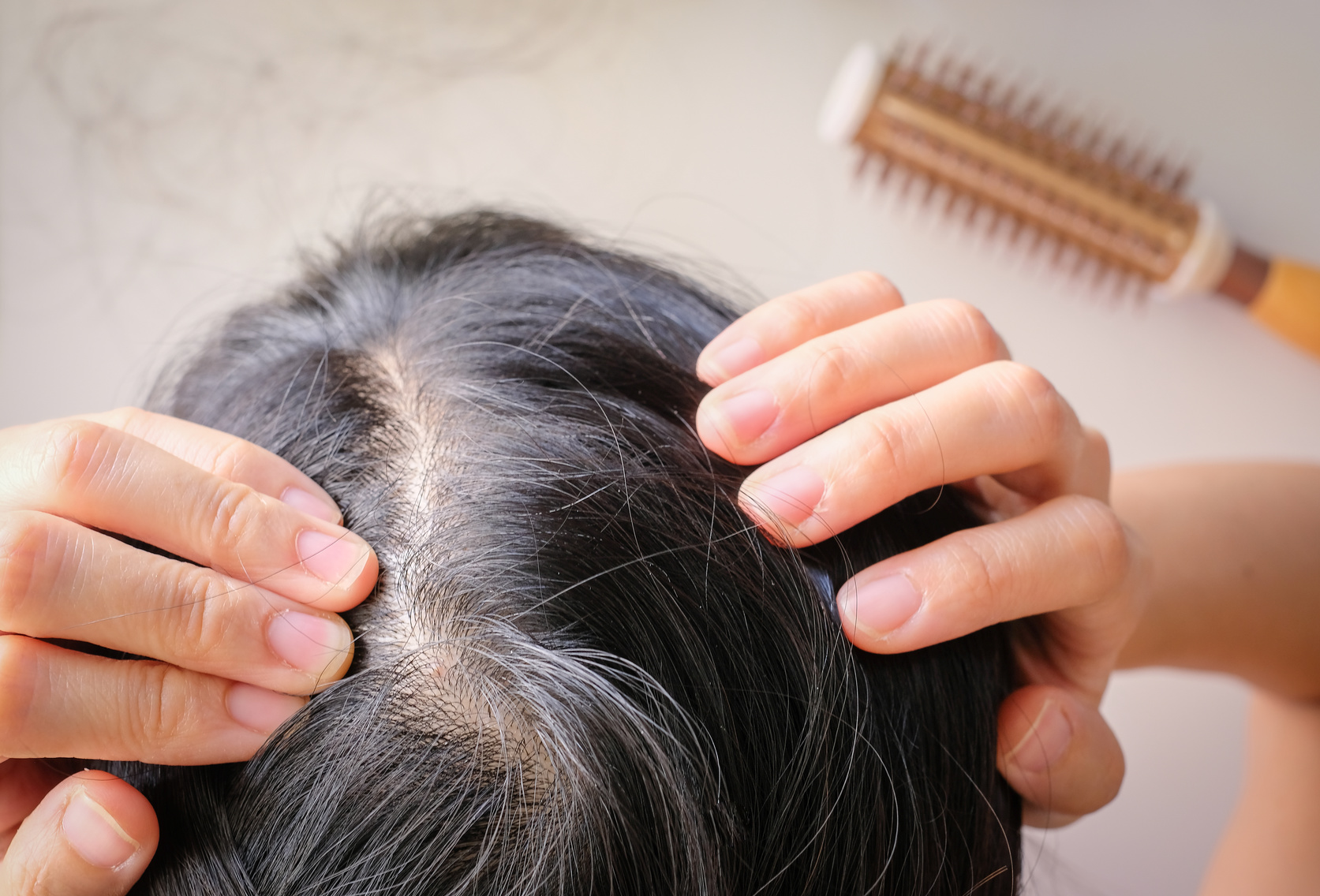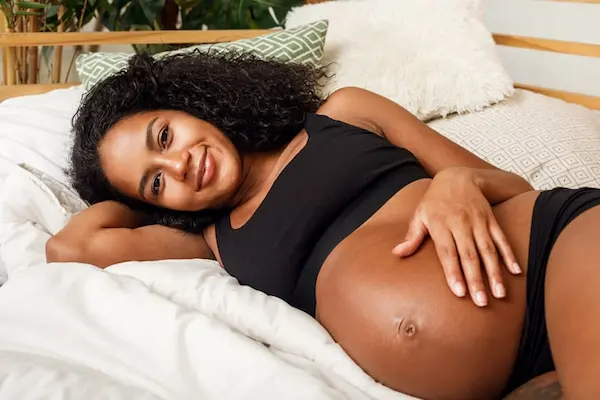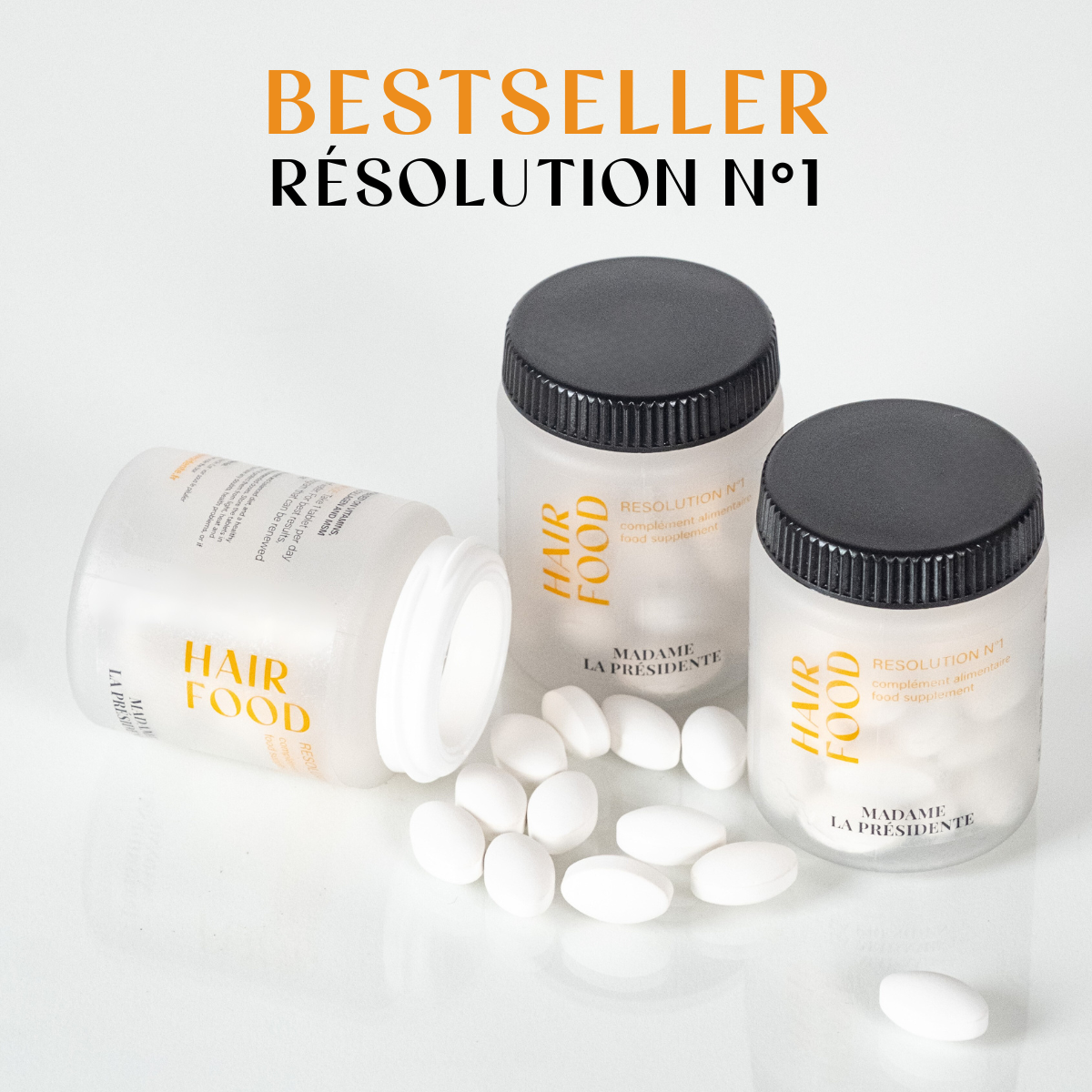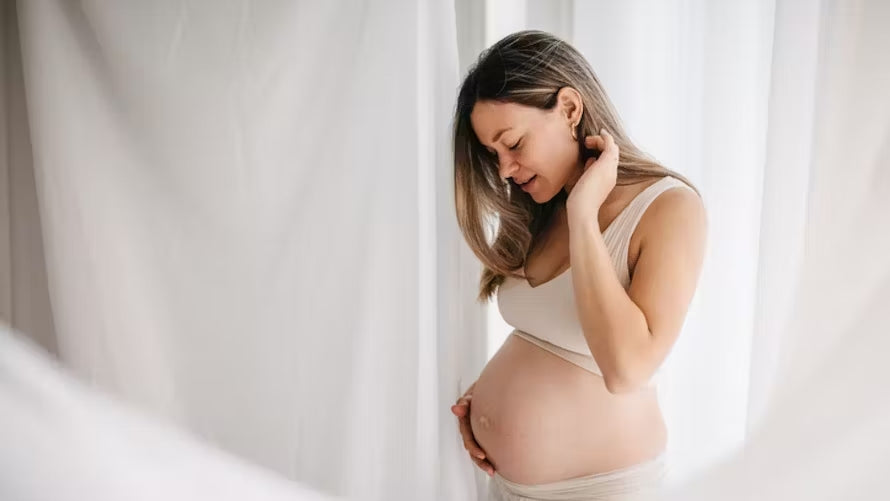Hair loss during pregnancy: causes, solutions and natural tips
Introduction
Hair loss during and after pregnancy is a phenomenon that upsets many women. Imagine yourself, radiant with happiness after the birth of your child, and suddenly faced with seemingly uncontrollable hair loss. This emotional shock is more common than you might think and is an integral part of the hormonal and physiological changes associated with motherhood.
Every woman experiences hair loss differently. Some barely notice a few extra hairs in their brush, while others experience more significant loss that can cause stress and anxiety. It's essential to understand that this phenomenon is mostly natural and temporary.
Hormonal fluctuations, postpartum stress, and bodily changes can all directly impact your hair. In most cases, this hair loss is neither permanent nor alarming. This article will guide you through the causes of hair loss, offer natural and medical solutions, and, above all, reassure you about this normal part of the female life cycle.
Why do people lose their hair during or after pregnancy?
Hormonal fluctuations
During pregnancy, the body produces a significant amount of estrogen, which naturally prolongs the hair growth phase. This is why many pregnant women notice thicker, shinier hair. Normally, 90% of your hair is in the active growth phase, while only 10% is in the resting phase.
After childbirth, the sudden drop in hormones causes a phenomenon called telogen effluvium. Estrogen, which kept your hair in the growth phase during pregnancy, drops rapidly. This hormonal decline triggers more significant hair loss, often between 3 and 6 months postpartum.
Progesterone also plays an important role. Its fluctuations can influence hair health, contributing to the changes observed during and after pregnancy. These hormonal changes are completely natural.

Physical and emotional stress
Childbirth and the postpartum period are often stressful. Chronic fatigue, lack of sleep, and emotional upheaval can directly impact the hair growth cycle. A stressed body can then affect hair growth.
Cortisol, the stress hormone, plays a crucial role. High levels can disrupt the hair growth cycle, causing what is known as telogen shedding. Every birth is a physical and emotional upheaval that puts your body under considerable strain.
The lack of sleep, characteristic of the first few weeks postpartum, amplifies this physiological stress. Your body focuses its energy on recovery and caring for the newborn, leaving few resources to maintain normal hair.
Nutritional deficiencies
Pregnancy and breastfeeding can quickly deplete your reserves of essential nutrients. Iron, zinc, vitamin D, and vitamin B8 play a crucial role in hair health. These deficiencies can rapidly accelerate hair loss, especially during breastfeeding.
Iron is particularly important. An iron deficiency can lead to anemia, which directly affects hair growth. Zinc plays a role in the repair and growth of hair tissue. Vitamin D stimulates hair follicles, while biotin (vitamin B8) strengthens the hair structure.

How to recognize abnormal hair loss?
It is important to distinguish between physiological hair loss and pathological hair loss. Generally, losing 50 to 100 hairs a day is considered normal. However, certain signs should alert you:
-
Hair loss all over the scalp
-
Hair loss persisting beyond 6 months postpartum
-
Localized areas of baldness
-
Hair that breaks easily
-
Irritated or painful scalp
Some warning signs :
-
Loss of more than 150 hairs per day
-
Areas of alopecia areata or baldness
-
A transformation of your hair texture
In these cases, it is recommended to consult a dermatologist or a specialist physician. An accurate diagnosis will help rule out any underlying problems and allow for the development of an appropriate treatment plan.
What solutions are there to limit or treat hair loss during pregnancy/postpartum?
A gentle and suitable hair care routine
Opt for products without sulfates or silicones. Choose anti-hair loss shampoos for women and gentle treatments that respect the fragility of your scalp.
Practical advice:
-
Wash your hair with lukewarm water
-
Use a moisturizing conditioner with our styling products from Madame la Présidente.
-
Avoid frequent blow-drying and straightening.
-
Protect your hair from UV rays with Madame la Présidente's Hair Mist.
Targeted nutrition and postpartum supplements
Choose a diet rich in:
-
Iron (meats, legumes, spinach)
-
Biotin (eggs, almonds, salmon)
-
Magnesium (nuts, seeds, dark chocolate)
-
Vitamin B12 (dairy products, fish)
For hair supplements , Mama gummies from Madame la Présidente offer a suitable solution for pregnant and breastfeeding women. Specifically formulated for them, these gummies help limit hair loss and promote growth. The gummies contain biotin (vitamin B8), folic acid (vitamin B9), vitamins B2, B6, B12, vitamins C and E, and iron.

Scalp massage to stimulate microcirculation
Simple actions can make a difference:
-
Use a stimulating brush like the Scalp brush to promote blood microcirculation
-
Gently massage your scalp with a serum such as Resolution No. 3
Natural solutions
Discover some treatments:
-
Fortifying oil baths
-
Masks made with natural ingredients
-
Herbal supplements
Preventing hair loss after childbirth
Some preventative advice:
-
Adopt a skincare routine from the start of pregnancy
-
Maintain a balanced diet
-
Avoid hairstyles that are too tight.
-
Get enough sleep
-
Stay properly hydrated
-
Protect your hair from external damage
FAQs about hair loss during pregnancy:
Is it normal to lose hair during or after pregnancy?
Yes, it's a natural phenomenon linked to hormonal changes. During pregnancy, hormones prolong the hair growth phase, making it thicker and shinier. After childbirth, the sudden drop in estrogen levels causes a return to normal, resulting in more significant hair loss.
How long does hair loss last after childbirth?
Generally, this phase of postpartum hair loss lasts between 3 and 6 months. Hair gradually returns to its normal cycle as hormonal balance is restored.
What supplements should I take to combat postpartum hair loss?
Mama gummies from Madame La Présidente are an excellent solution. Specially formulated for pregnant and breastfeeding women, they contain iron , vitamin B8 (biotin) , vitamin B9 (folic acid) , as well as zinc and nettle . This comprehensive formula helps to slow hair loss, promote growth, and maintain strong hair.
Does breastfeeding worsen hair loss?
Breastfeeding can exacerbate nutritional deficiencies, which can impact hair loss.


